2014
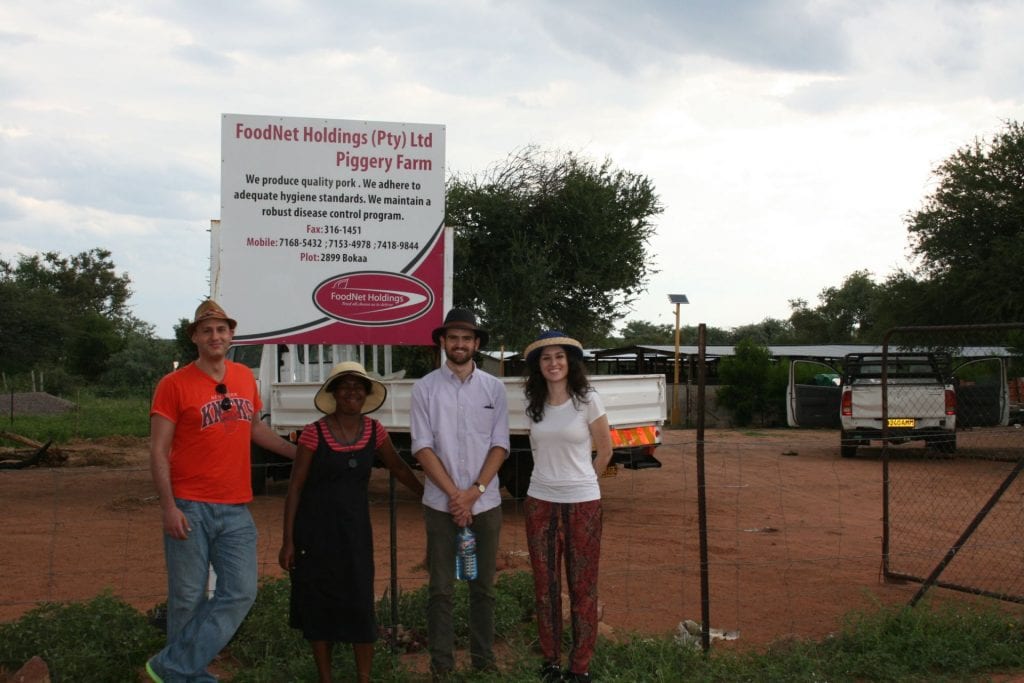 Foodnet Holdings, BOTSWANA
Foodnet Holdings, BOTSWANA
Partner Vision: To become a recognized leader in pork production, processing and packaging.
Partner Background: FoodNet Holdings was established in 2010 and employs three full-time employees at its pig farm facilities near Gaborone. FoodNet primarily sells pork carcasses to retailers and wholesalers. Individuals are supplied with whole or portion pork on request. FoodNet, in partnership with the Botswana Ministry of Agriculture, also hosts trainings for individuals interested in starting pig farms or learning more about pig husbandry. The company plans to provide a marketing opportunity for other breeders by sourcing weaners to grow to required market weight, and processing and packaging pork by-products to diversify its product line to meet requirements for various customers. The company is interested in entering the lucrative Botswana tourism sector by bringing tourists to visit and stay at the farm.
SMART Impact: The SMART team analyzed marketing possibilities to expand FoodNet’s current sales and to help the company continue to grow towards its goal of becoming a recognized leader in the pork production sector of Botswana. Students also examined ways to streamline the company’s business plan and wrote a case study for educational use about the company.
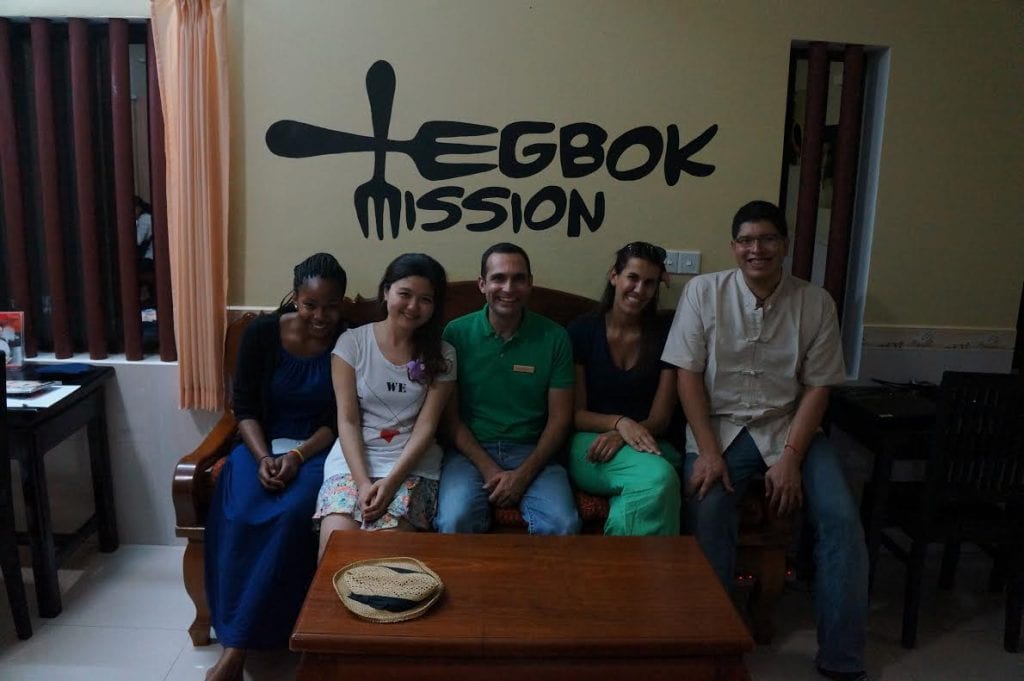 Egbok Mission, CAMBODIA
Egbok Mission, CAMBODIA
Partner Vision: To alleviate poverty by enabling underprivileged young adults in Cambodia to be self-supporting.
Partner Background: Cornell alumnus, Ben Justus ‘08, founded EGBOK Mission in 2009 to reduce poverty for young adults through education, training and employment opportunities in the hospitality industry while utilizing a comprehensive approach that emphasizes life skills development. Cornell students and alumni have frequently volunteered on-site.
SMART Impact: The SMART team helped to lay the groundwork for a social enterprise in Siem Reap, Cambodia, in part by producing and selling products to tourists at major partner hotels that represents Cambodian agriculture, cuisine, tradition, and culture as a fundraiser for EGBOK.
Xintuo Ecotourism Co., CHINA
Partner Vision: To empower and employ local Yunnan Province residents as tour guides and to provide visitors with direct experience in real-life, ethnic minority villages
Partner Background: Xintuo Ecotourism is a Naxi minority village cooperative enterprise founded in Lijiang in 2002 with the help of The Nature Conservancy. The company follows international ecotourism guidelines, employs minority guides, aims to increase awareness of local minority cultures, and donates 10% of its profits to a conservation and community development fund for the local community and schools. The company has an office in the Lijiang Old Town and takes foreign tourists out for hiking and traveling adventures, including homestays in a Naxi farming village located a 30-minute drive away.
SMART Impact: The SMART team generated new marketing ideas for Xintuo, developed a new company brochure highlighting the company’s focus on providing an ethnic minority cultural immersion experience for tourists, and edited English-language website materials. Through its interactions with the company, the team also developed a case study about Xintuo as a model for implementing ecotourism in China.
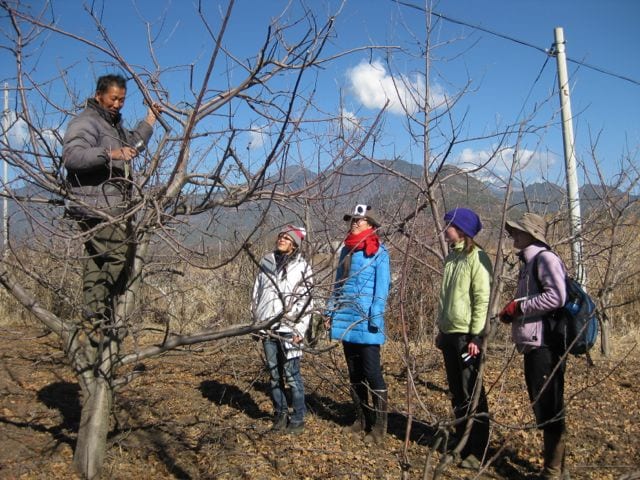 Smallholder Apple Production in Yunnan, CHINA
Smallholder Apple Production in Yunnan, CHINA
Project Vision: To enhance Cornell’s training materials for Chinese extension agents on smallholder apple farming.
Project Background: China now accounts for about 35% of world apple production and is the third largest producer in the world. Cornell University is spearheading a 3-year project to train Chinese extension agents to, in turn, train over 1 million Chinese smallholder farmers—especially women—in improved apple growing techniques.
SMART Impact: This SMART team worked with smallholder apple farmers and agricultural officials in Yunnan to learn about the nutrient, water, disease, and pest management challenges that the farmers face as well as the institutional services that exist to help farmers tackle them. Based on findings from farmer interviews, the SMART team developed recommendations to enhance upcoming Cornell extension trainings.
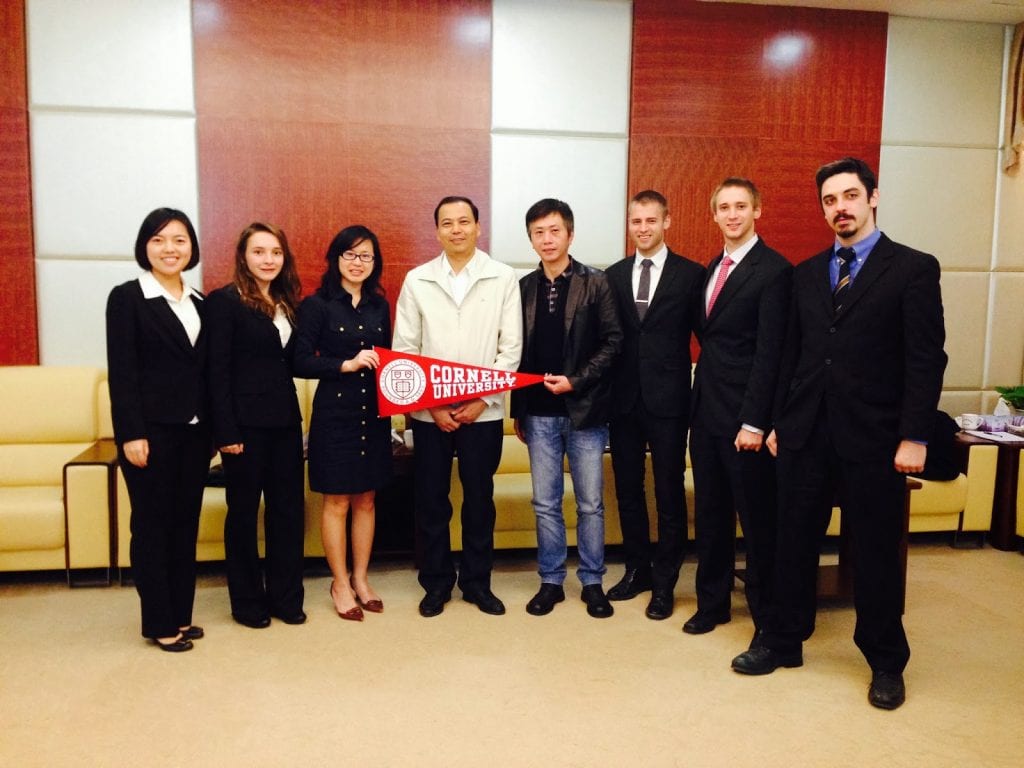 Yiyang Inc., CHINA
Yiyang Inc., CHINA
Partner Vision: To manufacture decorative items made of polyresin
Partner Background: Yiyang Inc. manufactures polyresin items such as desktop figurines, snow globes, and commemorative souvenirs. According to the owners, the company is the second-largest in this space in the Quanzhou area, which is known for having a high concentration of manufacturers of polyresin decorative items. The company has been export-focused since inception, with most of its clients in North America. Currently, Yiyang’s largest customer is Disney. Yiyang participates in trade shows in China (Guangzhou) and the U.S. (Las Vegas), and it also relies on middlemen to find new customers. Since the global financial crisis, its total sales have declined. Both Yiyang and the government agency overseeing its special investment and development area were interested in how such an export-driven enterprise could reorient, retool, and reinvent itself.
SMART Impact: The SMART consulting team developed recommendations for how Yiyang could best position itself to be more competitive in the international polyresin industry. The team recommended that Yiyang develop a high-quality English-language website and hire a marketing professional to represent the company at trade shows. The team also wrote a case study about Yiyang for future educational use.
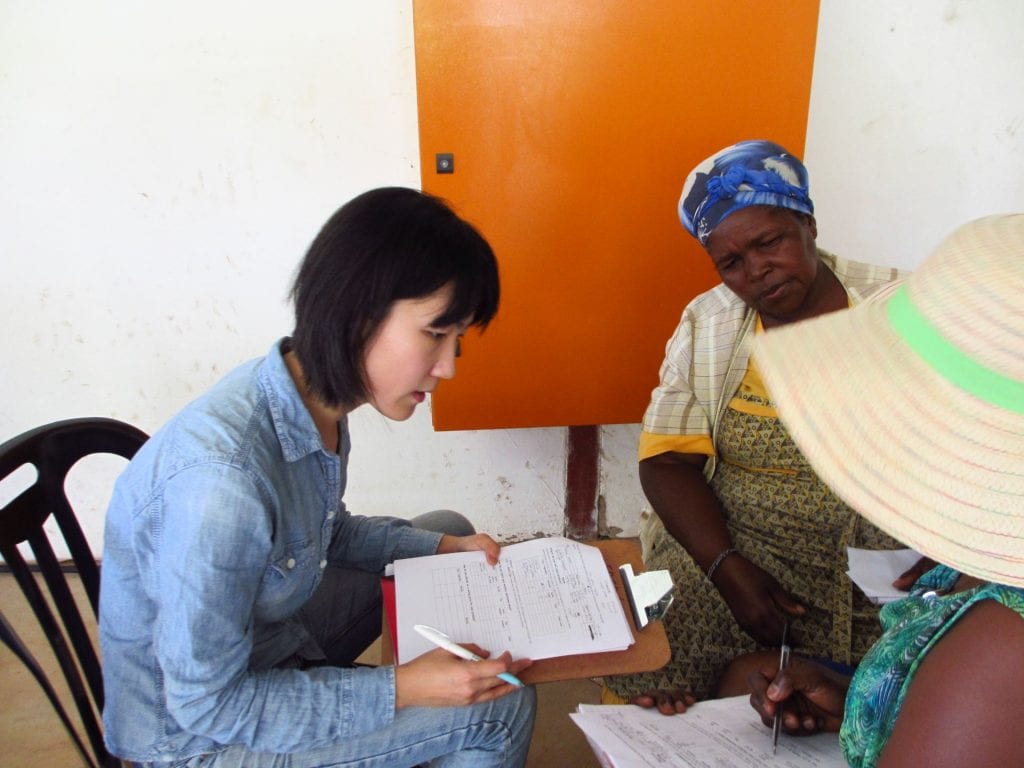 Smallholder Horticulture in SOUTH AFRICA
Smallholder Horticulture in SOUTH AFRICA
Partner Vision: To improve the quality of life of the Swayimane Zulu Community smallholder horticulturists in KwaZulu-Natal, South Africa.
Partner Background: The Swayimane Zulu Community is a primarily agriculturebased village in KwaZulu Natal province. To expand its ability to sell its produce to a broader market, the community was interested in developing a new value chain to market horticultural crops to large-scale retailers. The Swayimane Zulu Community regularly hosts research by groups of students from the University of KwaZulu-Natal who have helped improve the agricultural techniques used in the village. The SMART team partnered with the students from the University of KwaZulu-Natal to assist their efforts to expand the agricultural production of the village. While improvements in agricultural techniques have allowed the farmers in Swayimane to produce quality produce, the village has struggled to reach key markets for their produce.
SMART Impact: In the ongoing partnership between SMART and the University of KwaZulu-Natal, students from the two universities worked collaboratively to develop a network map and supply-chain analysis of community farmers, institutions, and industry stakeholders.
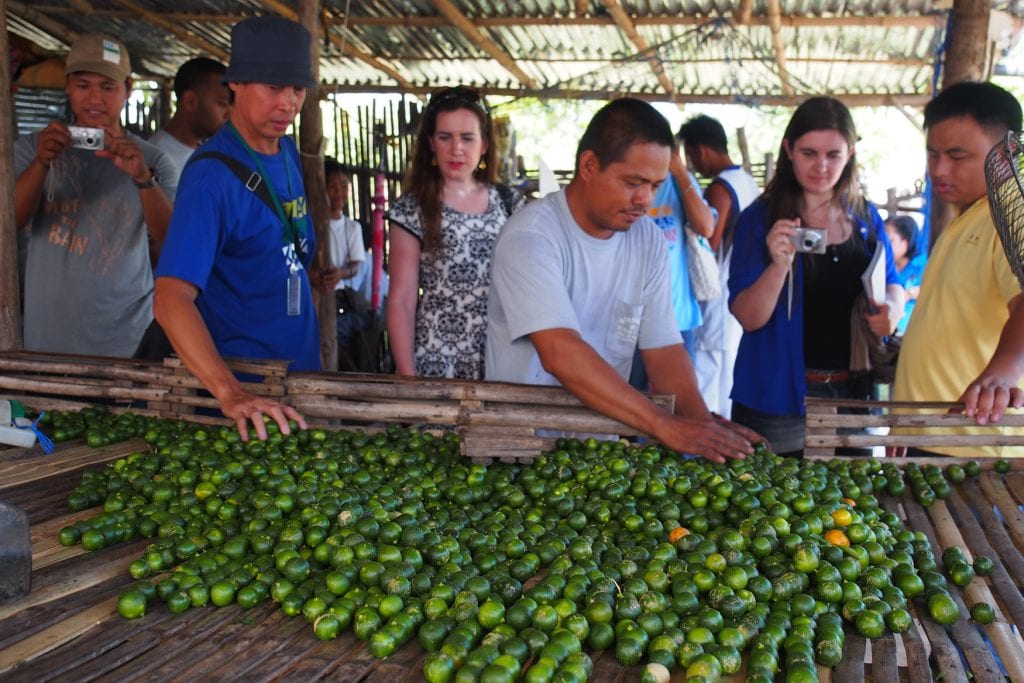
Philippine Calamansi Industry Association, PHILIPPINES
Partner Vision: To expand the growth of the calamansi industry.
Partner Background: Calamansi is an indigenous citrus fruit grown in the Philippines that is gaining recognition for its potential in global markets and for possible positive impacts on rural communities. The Philippine Calamansi Industry Association (PCIA) is a registered trade association operating in Manila with operations primarily in Luzon, Mindoro and Mindanao. The association’s first president, Helen Del Rosario, is dedicated to advancing the industry’s development, including its growers, processors, and buyers. PCIA currently exports high-quality concentrated calamansi juice to East Asia, the US and has penetrated the domestic market; however, the association is in search of strategic options to expand the growth of the calamansi and thereby advance the transformation of an industry in this emerging economy.
SMART Impact: The SMART team worked with cluster members to identify barriers to expansion and explore ways to overcome them. For instance, PCIA had identified a limited supply of raw product, and the short fruiting season of calamansi, as major constraints in calamansi processing. The team investigated if it is possible to improve production practices through use of irrigation and fertilization to lengthen the production season. They also explored if changes in processing techniques can be found to allow initial transformation of the fruit to a storable product, with subsequent processing during the rest of the year. Overall, the project team worked with the PCIA to develop a strategic plan and with companies in its “cluster” to identify elements of an industrial policy for the emerging calamansi industry of the Philippines.
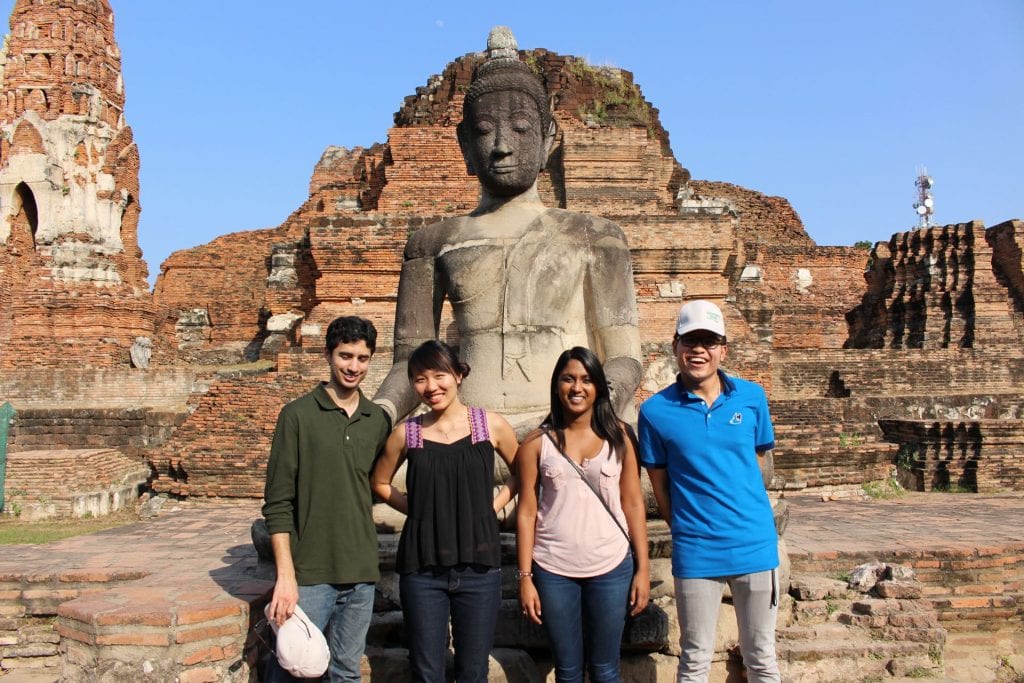 CEO Agrifood Ltd., THAILAND
CEO Agrifood Ltd., THAILAND
Partner Vision: To fully extract the nutritional benefits of rice bran.
Partner Background: The CEO rice bran company began in 2006 as a producer of crude rice bran oil and defatted rice bran to serve emerging global demand in alternative nutritional sources for food (cooking oil, salad oil) and feed (animal feed for poultry, swine, dairy, aqua culture). Within two years, CEO grew its capacity to be the third largest rice bran oil producer in the region. With 150 employees, CEO serves international clients in Japan, Malaysia, Korea, Thailand, India, Australia and New Zealand. The company uses a mixture of extraction technology from Brazil, Japan, and India. In 2009, CEO reached its revenue mark of one billion baht. CEO continues to evolve as a specialized, innovative rice bran oil company working with rice farmers and scientists. CEO is establishing a new refinery plant for edible rice bran oil. Generally, there are two main waste products (rice bran gum and wax) that have been removed from refinement. The cost of eliminating the waste is quite high.
SMART Impact: The SMART team investigated ideas to transform rice bran waste into valuable products to improve CEO’s productivity. The team searched for existing products made from rice bran gum and wax (both for industrial use and consumer use) and determined potential products from technical conditions and market conditions. The team also conducted a feasibility study of the potential products to ensure that they are beneficial to the company and wrote a case study report about the company.
Social Dimensions of Water Management, THAILAND
Project Vision: To help students learn about global environmental problems in a local context from a combination of classroom instruction, cultural learning experiences, completion of an action research project in Thailand with community partners and fellow students, and critical reflection and relation to the US context afterwards
Project Background: The learning experience, offered by the Dept. of Natural Resources at Cornell University in partnership with Mahidol University in Thailand, is centered on water management and flooding along the Chao Phrayra River and the surrounding communities that depend on this rich water resource. Students will gain an understanding of the multiple facets and perspectives of water governance issues by meeting with staff and members of communities and governmental and non- governmental organizations and research institutes during the abroad portion of the course. Water governance includes decisionmaking about water use, which is intertwined with issues of social justice, power, and economic development. In the Fall 2013 course, students explored various theoretical frameworks for global citizenship as relevant to questions of ethics, power, democracy, diversity, and environment. The group is applying these theories to the social dimensions of water governance in Thailand.
SMART Impact: The SMART team partnered with Thai university students, conducted site visits, interviewed people affected by flooding, and prepared a final research product on community-based water management and community flooding resilience.
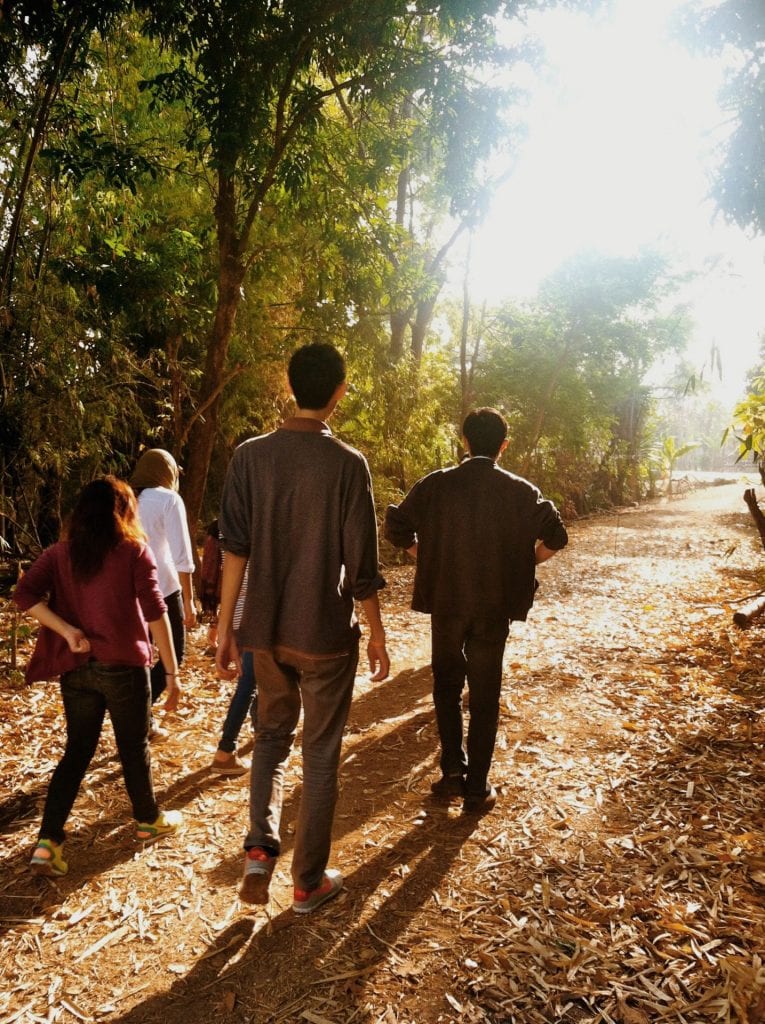
GABA Rice Group, THAILAND
Partner Vision: To improve the quality of life for villagers in Na Ngoi, Sakon Nakon Province.
Partner Background: The GABA Rice Project Group, formed in 2007, currently consists of 68 members, 12 of which process GABA rice. GABA rice is rice that has been germinated through a process of soaking the rice and germinating it in bags. The rice is then steamed, dried, and milled. Germinating the rice produces Gamma-aminobutyric acid, considered to increase the health benefits of the rice and making it more suitable for sale in higher end markets. However, the current production process in this community is not very profitable. A preliminary survey of the group shows that this is due to a lack of access to markets, process inefficiency, and a lack of certification.
SMART Impact: The SMART 2014 project team studied the market for GABA rice in Thailand to develop ideas for reaching untapped markets. The team identified wholesale buyers, distribution channels, and trends in the demand for/supply of GABA rice. They also studied how the market responds to substitutes for GABA rice, differences in product quality/certification, and changes in price. Using the data collected by the SMART 2013 team, the 2014 team analyzed the enterprise’s capacity to meet the demands of an expanded market
Cancer Resource and Education, MALAYSIA
Partner Vision: To provide culturally and linguistically appropriate breast cancer education through a sustainable program for and by Malaysians
Partner Background: The Cancer Resource and Education (CaRE) Center of Excellence is a cooperative project with Universiti Putra Malaysia and Cornell University, among many other partners. The need for the program grew from the lack of culturally and linguistically appropriate breast cancer education in Malaysia. The program currently provides information in Bahasa Melayu, Tamil and English, has opened a model resource center, provides continuing education programs for healthcare professionals, hosts counseling services and support groups, and leads public awareness programs. SMART worked with CaRE for two consecutive years. In order to continue to provide high quality services to the Malaysian population, CaRE requires a steady stream of funding. Since the CaRE Program is affiliated with Cornell University, tapping into sources of funding related to Cornell is an objective of the program.
SMART Impact: Students worked in collaboration with CaRE and the Cornell Club of Malaysia to establish an effective on-going fundraising program to allow CaRE to continue to provide the critical and in-demand services to those affected by breast cancer and to maintain its public awareness campaigns.
